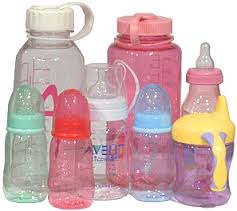 Exposure to bisphenol A (BPA) through consumption of canned beverages is associated with increases in systolic blood pressure, according to a randomized crossover trial in Hypertension. BPA is a chemical found in many plastic bottles, food containers, and the linings of cans. Sixty older adults (mostly women) had three study visits, during which they consumed two servings of soy milk provided one of three ways: in two glass bottles (least amount of BPA exposure), two cans (most BPA), or one glass bottle and one can. The sequence of serving containers was randomized. Urinary BPA concentrations were significantly higher 2 hours after participants drank from two cans versus two glass bottles. Furthermore, systolic BP was roughly 4.5 mm Hg higher after two cans versus two glass bottles. The authors write that the observed increase in systolic BP “may cause a clinically significant increase of risk of cardiovascular disorders, such as heart diseases and peripheral arterial diseases.” Bisphenol A (BPA) is produced in high volumes worldwide. It is used in the manufacture of polycarbonate plastics and epoxy resin, which are used in the linings of food or beverage cans, water bottles, and dental fillings. BPA has been detected in 95% of the population of the United States.
Exposure to bisphenol A (BPA) through consumption of canned beverages is associated with increases in systolic blood pressure, according to a randomized crossover trial in Hypertension. BPA is a chemical found in many plastic bottles, food containers, and the linings of cans. Sixty older adults (mostly women) had three study visits, during which they consumed two servings of soy milk provided one of three ways: in two glass bottles (least amount of BPA exposure), two cans (most BPA), or one glass bottle and one can. The sequence of serving containers was randomized. Urinary BPA concentrations were significantly higher 2 hours after participants drank from two cans versus two glass bottles. Furthermore, systolic BP was roughly 4.5 mm Hg higher after two cans versus two glass bottles. The authors write that the observed increase in systolic BP “may cause a clinically significant increase of risk of cardiovascular disorders, such as heart diseases and peripheral arterial diseases.” Bisphenol A (BPA) is produced in high volumes worldwide. It is used in the manufacture of polycarbonate plastics and epoxy resin, which are used in the linings of food or beverage cans, water bottles, and dental fillings. BPA has been detected in 95% of the population of the United States.
BPA is considered to be an endocrine-disrupting chemical, and it shows affinity for estrogen receptors. It was initially considered to be a weak xenoestrogen, but subsequent studies showed that BPA can have effects even at low concentrations. In addition, pathways other than binding to estrogen receptors have been proposed. These include the thyroid hormone pathway, binding to  glucocorticoid receptors and androgen receptors, or interfering with the central nervous system and immune system. Epidemiological studies have suggested that BPA could have adverse effects on human health. Specifically, BPA exposure has been shown to be associated with increased production of liver enzymes, recurrent miscarriages, premature delivery of fetuses, inflammation and oxidative stress, decreased quality of semen, and male sexual dysfunction.
glucocorticoid receptors and androgen receptors, or interfering with the central nervous system and immune system. Epidemiological studies have suggested that BPA could have adverse effects on human health. Specifically, BPA exposure has been shown to be associated with increased production of liver enzymes, recurrent miscarriages, premature delivery of fetuses, inflammation and oxidative stress, decreased quality of semen, and male sexual dysfunction.
Source: NEJM Journal Watch

